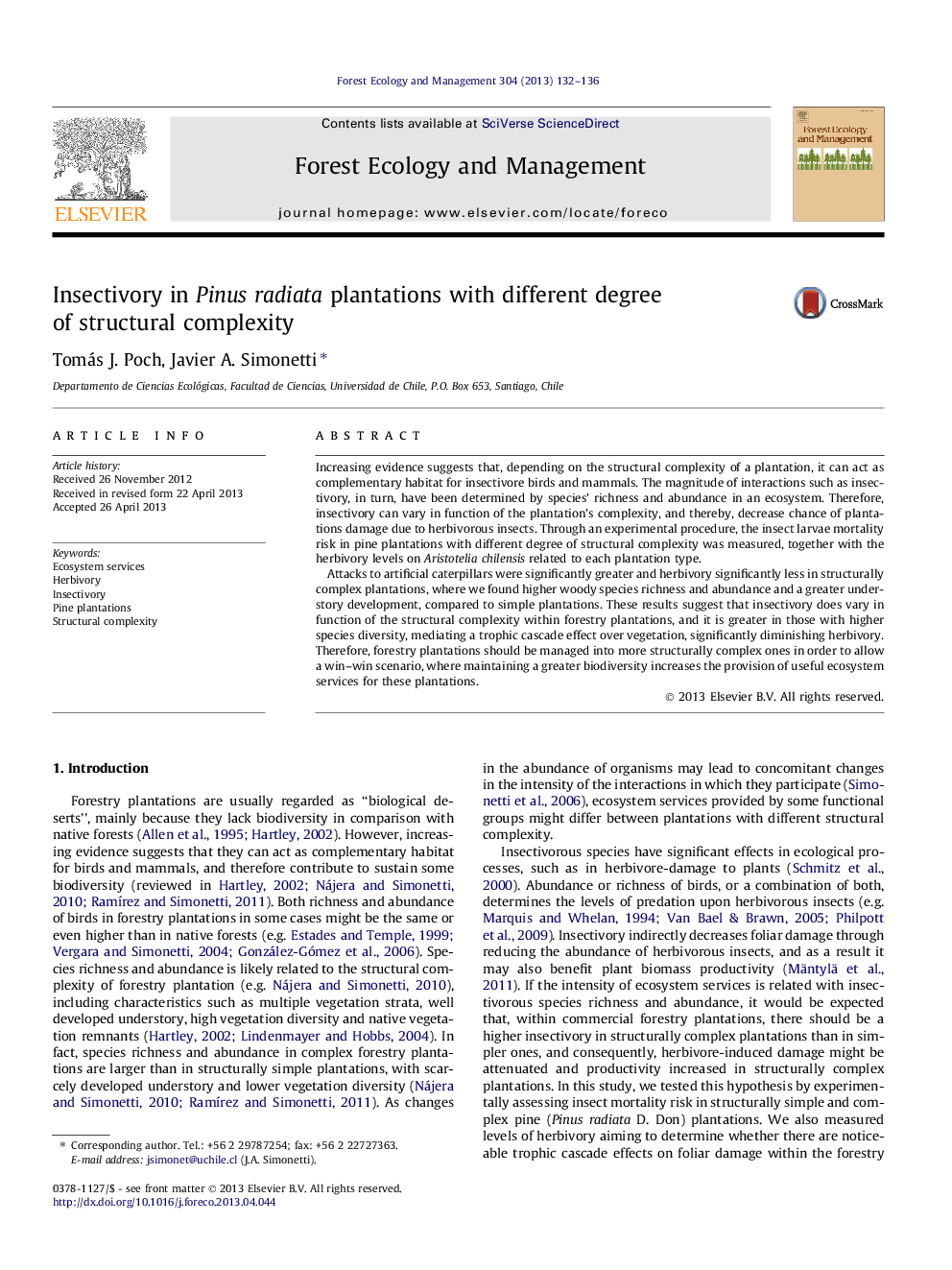| Article ID | Journal | Published Year | Pages | File Type |
|---|---|---|---|---|
| 6544213 | Forest Ecology and Management | 2013 | 5 Pages |
Abstract
Attacks to artificial caterpillars were significantly greater and herbivory significantly less in structurally complex plantations, where we found higher woody species richness and abundance and a greater understory development, compared to simple plantations. These results suggest that insectivory does vary in function of the structural complexity within forestry plantations, and it is greater in those with higher species diversity, mediating a trophic cascade effect over vegetation, significantly diminishing herbivory. Therefore, forestry plantations should be managed into more structurally complex ones in order to allow a win-win scenario, where maintaining a greater biodiversity increases the provision of useful ecosystem services for these plantations.
Related Topics
Life Sciences
Agricultural and Biological Sciences
Ecology, Evolution, Behavior and Systematics
Authors
Tomás J. Poch, Javier A. Simonetti,
